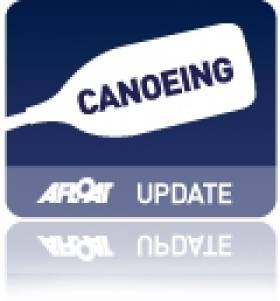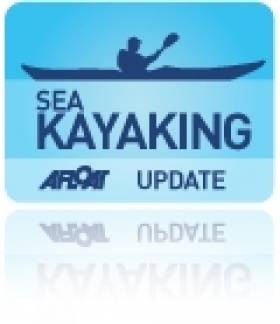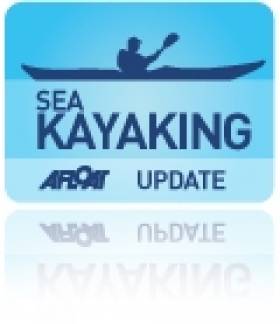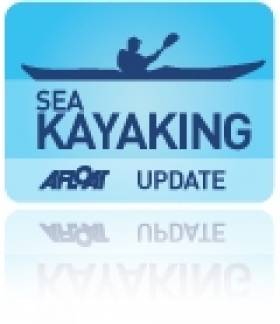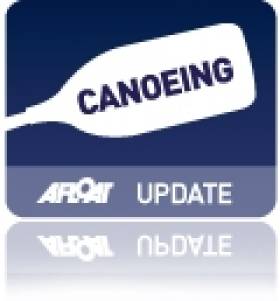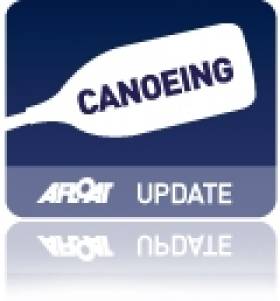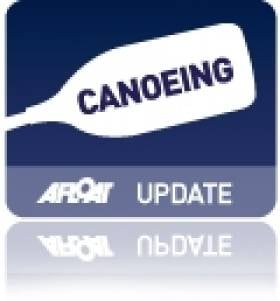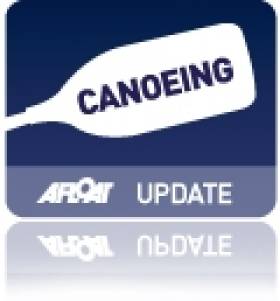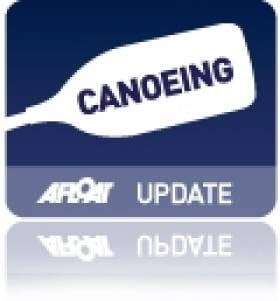Displaying items by tag: Kayaking
Young Cork Man Dies in Norway Kayak Accident
#NORWAY DROWNING - An Irishman has died in a kayaking accident in Norway, as The Irish Times reports.
UCC student and keen kayaker Colm Johnson, from Bandon in Co Cork, was paddling with four Irish friends on the "popular but challenging" Sjoa river in central Norway on Monday when he got into difficuly going over six-metre drop.
The rest of the group threw ropes from the shore to where the 25-year-old went under the surface but were unable to rescue him.
A rescue helicopter was dispatched to the scene less within an hour but was also unable to recover him, citing the operation as "very difficult" due to the narrowness of the ravine.
Johnson's body was later recovered downstream, and police in Norway are currently awaiting postmortem results.
He is survived by his parents, brother and two sisters. The Department of Foreign Affairs has offered consular assistance to the family.
The Irish Times has more on the story HERE.
New Canoe Trail Completes Northern Ireland Coastal Route
#CANOEING - Top junior surf kayaker Andy McClelland was on hand this week for the official opening of Northern Ireland's East Coast Canoe Trail, as the Carrick Times reports.
The new route - running for 70 nautical miles from Strangford Village at the mouth of the Ards Peninsula to Waterfoot on the Co Antrim coast, and passing the renowned Glens of Antrim and Belfast Lough - completes a series of trails that follows the entire Northern Irish coastline.
McClelland, who was victorious in the Surf Kayak Junior World Championships in North Carolina last October, described the trails as "a real feather in our cap in terms of visiting kayakers as there are few other countries in the world which can rival the canoeing facilities we now have here in Northern Ireland.”
The launch of the East Coast Canoe Trail comes almost a year after the introduction of the Foyle Canoe Trail and the 'kayaker's dream' South East Canoe Trail, as previously reported on Afloat.ie.
The route is completed by the North Coast Canoe Trail, highlighted on BBC TV last year, which takes in such remarkable sights as the Giant’s Causeway and Carrick-a-rede Rope Bridge.
Waterproof guides for both trails are available free from from local tourist information centres or online from CanoeNI.com. The website also features detailed online mapping and charts of the routes.
The Carrick Times has more on the story HERE.
Irish-Made Kayaks Star in Connecticut Small Boat Day
#KAYAKING - Irish-built kayaks were the vessels of choice for the third annual Small Boat Day in Groton, Connecticut, as the Mystic River Press reports.
Kayakers of all levels of experience were welcome for the free event on the waters off Esker Point Beach last Saturday, trying out some of 16 different models of sea kayaks provided by Kayak Waveology.
The New England-based sea kayaking school features vessels built in Ireland "to withstand the rigours of the Irish Sea".
The calm waters off Esker Point were no match for those conditions - which, if the novices have anything to say about it, is probably for the best!
Local resident Bill Grady, who has been the driving force behind the small boat event, said it was intended to encourage the public to make use of the "fabulous" resources that make use of the water.
"People don't really take advantage of them. Lots of people from out-of-town know about them," he said.
"It's just neat to play with small boats. You can get on the water very reasonably. It's great fun and a great family activity."
The Mystic River Press has more on the story HERE.
Cork Adventurer Sets Out To Round Ireland by Kayak
#KAYAKING - Cobh native Mike Jones has embarked on a challenging solo circumnavigation of Ireland by kayak to raise funds for a children's hospice.
The adventurer departed on Monday 4 June in an 18-foot sea kayak, aiming to paddle up to 12 hours and complete a marathon distance of 30 miles each day to finish the challenge in under five weeks.
His kayak will be loaded with more than 50kg of essential kit and supplies, including lots of food - Jones will need to consume at least 5,000 calories each day if he's to keep up the pace and beat the rough seas and strong currents around the Irish coastline, especially in this weather.
Jones - a veteran of expeditions including whitewater kayaking in Nepal and rowing across the Atlantic - hopes this latest adventure will raise €10,000 for the Children's Sunshine Home and LauraLynn House for children with life-limiting conditions.
The attempt evokes memories of last year's solo circumnavigation of the island of Ireland by Elaine 'Shooter' McKenna - the first woman from Northern Island to achieve such a feat.
SportsYoga.ie has more on the story HERE.
NI Firefighters Take On Celtic Crossing Challenge
#KAYAKING - Firefighters from Northern Ireland are currently undertaking the challenge of a lifetime to raise funds for a local children's charity, as UTV Live News reports.
Starting yesterday, the eight-strong team from Belfast and Lisburn embarked on the Celtic Crossing Challenge, which involves climbing Ben Nevis in Scotland followed by a 100-mile cycle to the Mull of Kintyre, kayaking across the North Channel to Northern Ireland, another cycle from Cushendun to Newcastle via Belfast, and a final ascent up Slieve Donard.
The firefighters of the Specialist Rescue Team have put in months of training in preparation for the event, which will conclude on Tuesday, which involved many hours kayaking at sea and on local rivers and loughs.
Max Joyce of the Northern Ireland Fire and Rescue Service (NIFRS) told UTV: "We'll be hitting Cushendun - hopefully Cushendun and not Iceland - at about 1pm on Monday and we would love people to come along and cycle with us into Belfast."
The challenge hopes to raise £20,000 for CLIC Sargent, a charity supporting young children with cancer. It has special significance for Joyce, who was diagnosed with cancer himself in 1997.
"It's worth every minute if we can in some small way help children who are suffering from this hideous disease," he said.
UTV Live News has much more on the story HERE.
Irish Rugby Star Tommy Bowe to Meet Up With Kayak Challengers
#KAYAKING - Monaghan's Tommy Bowe will be in Carrick-on-Shannon this Wednesday 2 May to cheer on the hardy souls taking part in his fundraising kayaking challenge, as the Leitrim Oberver reports.
The Irish rugby international will meet 12 of his fellow countymen who today begin a marathon six-day 300km paddle in double sea kayaks along the Shannon-Erne Waterway from Killaloe to Clones.
The Tommy Bowe Shannon-Erne Challenge is raising funds for Glaslough Harriers Athletics Club in Monaghan.
For more on the challenge visit the fundraising website at www.tommybowechallenge2012.com.
#KAYAKING - Two intrepid Irish adventurers are crossing Asia on the first leg of their 16,000 trek along the Silk Roads to Shanghai, The Irish Times reports.
Limerick's Maghnus Smyth and David Burns from Derry will be making their way entirely self-propelled by foot, bicycle, canoe and kayak across the Asian continent to the world's largest city, all in aid of Irish-based charity Self Help Africa.
The duo is currently well into an 8,500km cycle across Iran, Pakistan, India and Nepal to the Tibetan plateau, from where they will run through the Himalayas to the source of the Yangtse.
That point marks the start of an epic 6,300km kayak run along the river's length to Shanghai.
To keep track of their adventures and donate to their charity fund, visit their adventure blog at sand2snowadventures.com.
Father-Son Duo in Charity Paddle from Dublin to Donegal
#KAYAKING - A father-and-son duo from north Co Dublin will shortly embark on an epic kayak paddle from Dublin to Donegal, the Fingal Independent reports.
Dermot Higgins and his son Fionn, from Rush, will attempt to kayak from Dublin Port to the Atlantic Ocean at Ballyshannon - a distance of some 330km - by way of the Royal Canal, the River Shannon and Lough Erne.
The Higgins' - who believe they are the first to attempt such a feat - will be completely self-sufficuent for the duration of the challenge, which is hoped to raised funds for the Rush Open Organisation for Transition Status (ROOTS), a charity that intends to help communities reduce their carbon footprint and face up to environmental challenges by encouraging sustainability.
The Fingal Independent has more on the story HERE.
Gaelforce Looks Forward To Busy 2012
#KAYAKING - The Gaelforce adventure racing brand is looking forward to a busy 2012, as The Irish Times reports.
Best known for its signature race Gaelforce West - combining trail running, hiking, cycling and kayaking over a 67.5km course and attracting up to 3,000 competitors annually - the business is adapting to the prevailing economic climate by diversifying its activities.
This includes its Trail Blazer series, consisting of shorter running and kayaking races, as well as partnering with sports scientists at Santry's Sports Surgery Clinic to provide expert information to athletes.
“We’re trying to be innovative," said Gaelforce's Ciara Young. "Marketing had to pull back so the new events are ways to get people to interact with the brand and keep them thinking about the brand."
The Irish Times has more on the story HERE.
UL Take Title at Irish Kayaking Intervarsities
#KAYAKING - The University of Limerick were overall winners in the 2012 Irish Kayaking Intervarsities at GMIT Castlebar last weekend.
As the Mayo Advertiser reports, some 500 students were on hand for the three days of competition, which kicked off with canoe polo on Lough Conn (won by GMIT over DCU).
Saturday's action saw the whitewater contest on the Clydagh River, with Limerick emerging on top, and the freestyle event on the River Clare at Tuam Wave.
Sunday closed with the long distance event at Lough Lannagh, which clinched the weekend for UL's kayakers.
Mayo also hosted the Irish Intervarsity Sailing Championships in Rosmoney last week, which attracting 200 students to the Westport area.




























